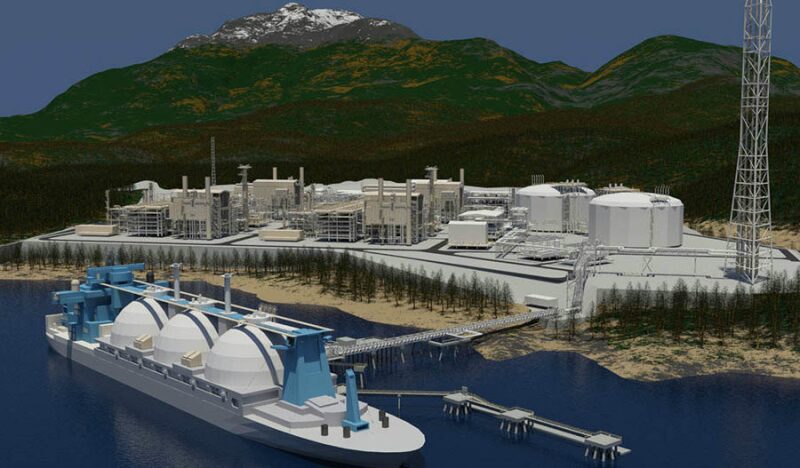Woodside has decided to exit its 50% nonoperated participating interest in the proposed Kitimat Liquefied Natural Gas (KLNG) development, located in British Columbia, Canada. The exit will include the divestment or wind-up and restoration of assets, leases, and agreements covering the 480 km Pacific Trail Pipeline route and the site for the proposed LNG facility at Bish Cove.
Project operator Chevron announced its plan to divest its 50% interest in KLNG in December 2019. Woodside said it will work with Chevron to protect the project's value during the exit. The costs associated with the decision to exit KLNG are expected to affect 2021 net profit after tax up to $60 million. Woodside added that it would retain a position in the Liard Basin upstream gas resource.
"Following Chevron’s decision to exit KLNG and subsequent decision in March 2021 to cease funding further feasibility work, Woodside undertook a comprehensive review of our options for the project and our wider development portfolio," said Meg O’Neill, Woodside's acting chief executive. She said that exiting KLNG will allow Woodside to focus on the successful delivery of higher-value opportunities in Australia and Senegal.
“The Kitimat LNG proposal was designed to develop a new source of LNG to supply Asian markets in the latter part of this decade,” O’Neill said. “However, we have decided to prioritize the allocation of capital to opportunities that will deliver nearer-term shareholder value. Woodside is focused on working towards the targeted final investment decision for the Scarborough LNG development in Western Australia in the second half of 2021 and the continued successful execution of our Sangomar oil project offshore Senegal.”
O’Neill added that retaining an upstream position in the Liard Basin provides Woodside a low-cost option to investigate potential future natural gas, ammonia, and hydrogen opportunities in British Columbia.
The Kitimat project comprises upstream resource assets in the Liard and Horn River basins in northeast British Columbia; the Pacific Trail Pipeline; and the natural gas liquefaction facility at Bish Cove near Kitimat. The planned Kitimat LNG Plant included up to three LNG trains totaling 18 million tonnes per year and is an all-electric plant powered by clean, renewable hydroelectricity from BC Hydro.


